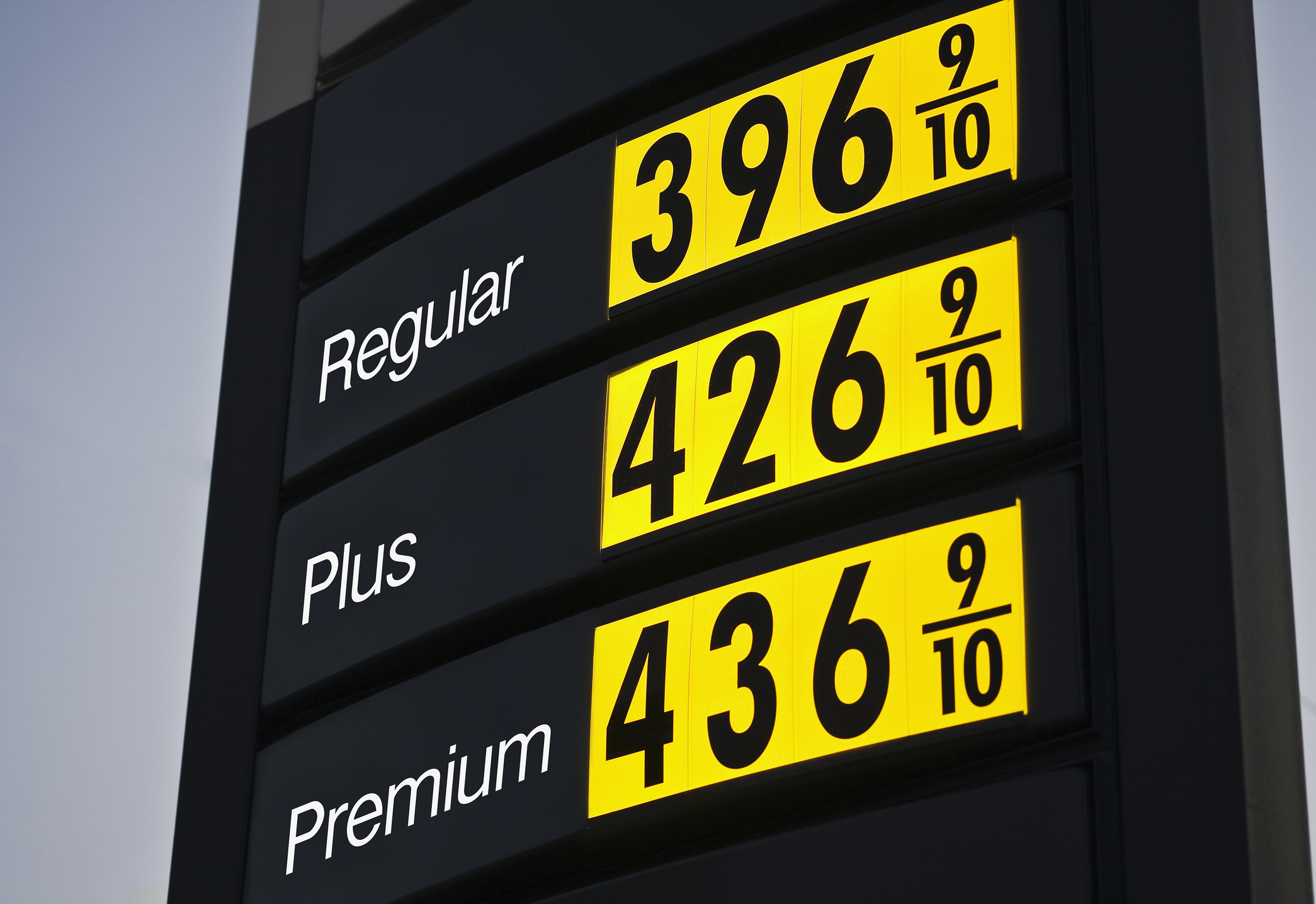ABCs of a Great Car Loan
A few simple strategies will prevent you from being fleeced in the dealer's finance office.

Profit and prosper with the best of Kiplinger's advice on investing, taxes, retirement, personal finance and much more. Delivered daily. Enter your email in the box and click Sign Me Up.
You are now subscribed
Your newsletter sign-up was successful
Want to add more newsletters?

Delivered daily
Kiplinger Today
Profit and prosper with the best of Kiplinger's advice on investing, taxes, retirement, personal finance and much more delivered daily. Smart money moves start here.

Sent five days a week
Kiplinger A Step Ahead
Get practical help to make better financial decisions in your everyday life, from spending to savings on top deals.

Delivered daily
Kiplinger Closing Bell
Get today's biggest financial and investing headlines delivered to your inbox every day the U.S. stock market is open.

Sent twice a week
Kiplinger Adviser Intel
Financial pros across the country share best practices and fresh tactics to preserve and grow your wealth.

Delivered weekly
Kiplinger Tax Tips
Trim your federal and state tax bills with practical tax-planning and tax-cutting strategies.

Sent twice a week
Kiplinger Retirement Tips
Your twice-a-week guide to planning and enjoying a financially secure and richly rewarding retirement

Sent bimonthly.
Kiplinger Adviser Angle
Insights for advisers, wealth managers and other financial professionals.

Sent twice a week
Kiplinger Investing Weekly
Your twice-a-week roundup of promising stocks, funds, companies and industries you should consider, ones you should avoid, and why.

Sent weekly for six weeks
Kiplinger Invest for Retirement
Your step-by-step six-part series on how to invest for retirement, from devising a successful strategy to exactly which investments to choose.
In the Internet age, finding new-car data to use as haggling ammo is easy. But many buyers who spend days whittling the sticker price let down their guard and hand the savings back when they accept a dealer's car-loan rate. It's easy to see why. The rate you get depends on information that's not always easy to come by. Plus, dealers put their most talented closers in the financing-and-insurance office, where you are subjected to a rash of offers for extended warranties and other add-ons as well as a blizzard of paperwork that can exhaust you into submission.
| Row 0 - Cell 0 | The 2009 Cars: Deals Are Insane |
| Row 1 - Cell 0 | SLIDE SHOWS: Best Cars for 2009 |
| Row 2 - Cell 0 | EXTRA: Green Machines 2009 |
| Row 3 - Cell 0 | MORE: Kiplinger's Car Buying Guide |
Dealers have also been known to bump the rate above what you should pay based on your credit history. If you qualify for a 6.5% rate but the dealer charges 8% on a 60-month, $20,000 car loan, you pay $900 more in interest. That's extra profit for the dealer.
Where do you stand?
The interest rate you pay depends on the credit "tier" you fall into. Tier A and sometimes tier B borrowers get the best rates; E borrowers pay up to 30% interest. On five-year loans, A-credit customers shopping for a new vehicle could recently command rates of 6% to 7%, or as low as 0% on vehicles sporting low-rate incentives.
From just $107.88 $24.99 for Kiplinger Personal Finance
Become a smarter, better informed investor. Subscribe from just $107.88 $24.99, plus get up to 4 Special Issues

Sign up for Kiplinger’s Free Newsletters
Profit and prosper with the best of expert advice on investing, taxes, retirement, personal finance and more - straight to your e-mail.
Profit and prosper with the best of expert advice - straight to your e-mail.

The tier you fall into depends mostly on your credit score, so the first thing you should do is research that number. You can get a free credit report once a year from each of the big-three credit bureaus at www.annualcreditreport.com, but you usually have to pay $6 or so to get your credit score. FICO scores, the most popular flavor, range from 300 to 850. About half of all car buyers who finance a vehicle have a score above 720 (tier A), according to a study by the Consumer Banker's Association. Another 25% beat 680 (tier B). If you have a borderline score, you could be boosted into a higher tier if you make a sizable down payment or shorten the loan term.
In the U.S., the average down payment for a car is $2,400, the average amount financed is $24,864, and the average monthly payment is $479, according to Edmunds.com. The most popular loan term is now a payment-stretching six years.If you're "upside down" on your old car loan (you still owe money on it after the trade-in), it's no longer a deal breaker. In these days of easy credit, lenders will roll the old balance into the new. Nor are down payments de rigueur; you can finance up to 100% of the manufacturer's suggested retail price plus taxes, tags and fees.
Avoid the traps
A few simple strategies will prevent you from being fleeced in the dealer's finance office. Your best bet is to have a good loan rate in the bag before you even set foot on the car lot. First, find out the annual percentage rate you qualify for, and then get pre-qualified for a loan from your bank, your credit union or an online lender, such as E-Loan or Capital One Auto Finance. If the dealership can't beat the rate, politely decline its loan.
A corollary is to keep all transactions -- price of the car, value of the trade-in and financing -- separate. If you let the dealer merge them, it's tough to know if you're getting the best deal on each one. And a dealer who knows how much you'd like your monthly payment to be can play with the price, options, trade-in value and interest rate to come up with what you budgeted -- often by extending the loan term. See Wheeling and Dealing to learn more about how to negotiate your deal.
Should you take a low-rate-financing incentive instead of a cash rebate? Zero percent is hard to beat, but if your loan rate is low, say 4.9%, the decision is tougher. One rule of thumb is to take the cash if you plan to keep the vehicle less than three years. But run the numbers on an Internet calculator such as the one at kiplinger.com/links/carincentive.
Writing a check from your deductible home-equity line of credit isn't always a good strategy now that average interest rates are about 8.8%. It's probably better to keep the home-equity funds intact for a home-remodeling project or financial emergency.
Profit and prosper with the best of Kiplinger's advice on investing, taxes, retirement, personal finance and much more. Delivered daily. Enter your email in the box and click Sign Me Up.

Mark was the editor of Kiplinger's Personal Finance magazine from July 2017 to June 2023. Prior to becoming editor, he was the Money and Living sections editor and, before that, the automotive writer. He has also been editor of Kiplinger.com as well as the magazine's managing editor, assistant managing editor and chief copy editor. Mark has also served as president of the Washington Automotive Press Association. In 1990 he was nominated for a National Magazine Award. Mark earned a B.A. from University of Virginia and an M.A. in Writing from Johns Hopkins University. Mark lives in Washington, D.C., with his wife, and they spend as much time as possible in their Glen Arbor, Mich., vacation home.
-
 Dow Leads in Mixed Session on Amgen Earnings: Stock Market Today
Dow Leads in Mixed Session on Amgen Earnings: Stock Market TodayThe rest of Wall Street struggled as Advanced Micro Devices earnings caused a chip-stock sell-off.
-
 How to Watch the 2026 Winter Olympics Without Overpaying
How to Watch the 2026 Winter Olympics Without OverpayingHere’s how to stream the 2026 Winter Olympics live, including low-cost viewing options, Peacock access and ways to catch your favorite athletes and events from anywhere.
-
 Here’s How to Stream the Super Bowl for Less
Here’s How to Stream the Super Bowl for LessWe'll show you the least expensive ways to stream football's biggest event.
-
 10 Things You Should Know About Buying a Car Today, Even if You've Bought Before
10 Things You Should Know About Buying a Car Today, Even if You've Bought BeforeIf buying a car is on your to-do list, and it's been a while since you went shopping for a new one, this guide will help avoid any nasty shocks in the showroom.
-
 Get the Best Car Deal in Retirement: Here's the Trick
Get the Best Car Deal in Retirement: Here's the TrickPlanning on shopping for a new car this Labor Day weekend? Here’s how to haggle for a better price, even though you're retired.
-
 7 Gas-Saving Tips That Actually Work
7 Gas-Saving Tips That Actually WorkThese are gas-saving tips that will actually work for you and your car this year.
-
 Want to Lease an EV? The Tax Credit 'Loophole' for That Is Going Away Soon
Want to Lease an EV? The Tax Credit 'Loophole' for That Is Going Away SoonTax Credits If you are deciding whether to lease or buy an electric vehicle, here is what you need to know about how the EV lease tax credit works now that it will be eliminated under Trump's new tax law.
-
 Car Buying in a Topsy-Turvy Market
Car Buying in a Topsy-Turvy MarketYou need a new car? Good luck with that! What should you do? We've got some answers.
-
 Watch Out for Flood-Damaged Cars from Hurricane Ian
Watch Out for Flood-Damaged Cars from Hurricane IanBuying & Leasing a Car In the wake of Hurricane Ian, more flood-damaged cars may hit the market. Car prices may rise further because of increased demand as well.
-
 Car Buyers: The 3-Day Grace Period Is Just a Myth!
Car Buyers: The 3-Day Grace Period Is Just a Myth!Buying & Leasing a Car Many car buyers think they have three days after making a purchase to return a car. Here’s where they’re going wrong, and what they should do instead to get a decent used car.
-
 PODCAST: Car-Buying in an Inflated Market with Jenni Newman
PODCAST: Car-Buying in an Inflated Market with Jenni NewmanBuying & Leasing a Car With cars both scarce and expensive these days, what to do if you want – or need – a new ride? Car-buying strategist Jenni Newman of Cars.com shares some tips. Also, more on the magical 9% savings bond.